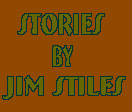

I WAS A MILITARY DETAINEE IN THE WAR ON TERRORISM
When President Bush talks about the War on Terror he always reminds us that we are fighting for Freedom, that fundamental principle so highly cherished by most Americans. We take particular pride in our freedom to express an opinion openly, to disagree when we feel the moral need, and we almost take it for granted our right to move freely about the country. That freedom of movement has been tested lately, mostly and understandably at airports, and the majority of us have accepted the restrictions philosophically, albeit with a growl and a grumble.
But just how far are we willing to go in the War on Terror when it comes to our freedoms? A few weeks ago, in the most unlikely of locations, I found out what my limit is.
Last month I drove up to Jackson, Wyoming to visit my buddy, the legendary musician Bob Greenspan, and to get out of this drought-stricken desert of ours. The town was packed, of course, a nightmarish future version of what Moab will become someday. But I wasn't there to lament. I went to Jackson to get away and to look up old and favorite digs that have surprisingly changed very little over the years.
North of town, the Grand Tetons still rise majestically above the valley as they have for so many millions of years, and the distance to the peaks is so great that it's impossible to see, even with binoculars, all the young professional weekend climbers calling their wives and girlfriends from the summit on their cell phones.
But there are places, less dramatic for sure, that have mostly been left alone and that's where I wanted to be. I turned off the paved highway and found the old gravel road much as it had been when I last visited it a few years ago. There were a few campers, but not enough to make me crazy, and millions of late summer wildflowers and a beautiful clear day to take in the stunning scenery.
And then I saw something odd.
At the top of the ridge, sprawled across what was once a wildflower-bedecked mountain meadow, I saw a series of huge tents. They looked like circus tents from Barnum & Baily, but they were camouflaged and protruding from many of them was an array of antennae of various heights. They covered acres and acres of ground.
I'd been coming up here for more than 20 years and had, in fact, camped many times in that very meadow. Now I couldn't believe what I was seeing. My first reaction was to pull over and take a picture. I parked on the side of the narrow dirt road and reached for my camera. As I climbed out of the car I first noticed an official-looking "KEEP OUT" sign and accompanying day-glo ribbon that blocked a side road. I walked to the middle of the gravel and was about to raise my camera to my eyes when I heard the roar of a motor, coming toward me at a very brisk clip. I looked up and saw an ATV Quad; perched in the seat was a young soldier from the United States Army.
He stopped his ATV next to me and stared at my Nikon. "Sir, were you planning to take photographs?"
I nodded.
"Of the facility?"
"Well...yes," I replied unsteadily. "Of the...facility? What is it?"
The young soldier shifted uncomfortably and tried to be pleasant. "I really don't know sir. But I'm going to have to ask you not to take pictures of the facility."
I just shook my head. "How can it be a problem for me to take a picture of some tents? Is this supposed to be some kind of top secret? Right here in the middle of Teton National Forest?"
"I really don't know sir. But if you really want to take a photograph, I'll have to call my superiors."
"OK," I said. "That's a good idea. Call your supervisor."
He pulled his ATV onto the closed dirt track and called his "superior" on the two-way radio. I could only hear part of the conversation...
"10-4. There's a guy down here with a camera and he wants to take a photograph of the installation..."
Pause.
"Yeah...it's got a telephoto lens. Right."
The soldier signed off and said, "We'll have to wait for clearance if you still want to take a picture."
I waited. I tried to ask him about the operation, but all I could get out of him was, "I really don't know, sir."
Finally, I said, "If I asked you a question and you knew the answer, you'd still say, 'I really didn't know,' right?"
The soldier looked at me and nodded. Then, in a moment of candor, he smiled and said, "Honestly, I don't know a heck of a lot more than you do." I believed him.
At last, the call came back. I could take photographs of the facility, but only from that location. I snapped away and my new military pal stood beside me. Just as I was finishing up, I had a brainstorm. A revelation. An epiphany! This is August. This is Jackson Hole, Wyoming. This is the home of Vice President Dick Cheney! Of course! That had to be it!
"You guys are here because of Cheney, right? This has something to do with the Vice President coming here for his summer vacation. I'm right aren't I?"
"I really don't know sir," but his grin gave him away. As I got back in the car, he leaned over and said meekly, "I hope you didn't think I was harassing you."
"It's ok," I said. "You're just doing your job in the War on Terror."
I continued north along the ridgeline and every side road was blocked for the next two miles. Signs and flagging and orange cones were everywhere. The War on Terror was being waged on Horseshoe Mountain.
Later, back in town, I shared my story and heard a few new ones. The installation, I learned, was mostly a communications command post to monitor incoming air traffic. From those tents, the U.S. Army controlled the skies above Jackson Hole. Some claimed that they'd seen surface-to-air missiles and even tanks and APCs on the mountain. Dick Cheney came to Jackson with plenty of firepower, but most residents were unmoved by the mountaintop compound.
"At least, it's quieter," one Jacksonite explained. "All last fall, three F-16s flew over us all day. We all knew that meant Dick was here."
Some "undisclosed secure location."
As for me, now that I've been detained by the military in a national forest because of the War on Terror, I'm fully expecting a call from Geraldo. Whether all of this was necessary to maintain the security of the United States Government, I really couldn't say. But one thing is certain---everything has changed since September 11, 2001. We are only now beginning to understand those changes. And what of the future? What's next? How dear is your freedom?
WHAT WAR IS LIKE...
With the world changing rapidly around us, with talk of war becoming almost commonplace and inevitable, I remembered a conversation from years ago. I'd wandered over to a favorite little town in New Mexico, whose name I won't reveal for fear that the literally dozens of people who read this paper will descend upon the village in monstrous hordes and ruin it. I was standing in front of the country store with my friend Pat Cooke and her 15 year old dog Sue, when two of her pals stopped by for a chat.
Their names were Phillip and Armando and they had driven up from the south to visit. Both gentlemen were in their 60s or early 70s at the time, and Phillip had recently been discharged from the hospital after suffering a serious stroke. For six months he had been unable to speak and some worried that he would never recover. It was apparent, however, that Phillip had indeed recovered, and was making up for lost time. While he shamelessly flirted with both Pat and the dog, his older brother Armando told me his life story. I swear this is what he told me. The conversation went something like this...
"My brother and I are Basque, you know. We came from the Pyrenees before the second world war," Armando explained.
"Really," I said. "What did you do when you came over here?"
"Well," he replied, "I went to work for the OSS."
I knew what the OSS was...the Office of Strategic Services, the military intelligence agency during World War II. I know my WWII history pretty well, and since I also believe that in my last life I may have been the pilot of a B-24 Liberator in Europe that was shot down over Belgium in August 1944, I could converse fairly intelligently with him on the subject.
"The OSS?" I said. "Did you ever meet the director, Bill Donovan?"
"'Wild Bill' Donovan? Of course...I met with him several times in the President's office."
"The President's office? Which president do you mean?"
"Why President Roosevelt's office. You see, Franklin Roosevelt was president during the--"
"I know he was president during the war," I interrupted. "You actually met President Roosevelt?"
"Yes, of course. He was a great man. Donovan was too...and tough. No man was tougher than Donovan."
"Well," I asked somewhat hesitantly, not knowing whether to believe a word of this, "what did you do for the OSS?"
"I was an agent," he explained casually.
"You were a spy?"
Armando shrugged. "I guess you could say that."
I looked at Armando. He barely stood five and a half feet tall. Stocky and balding with bushy white sideburns, I wondered if this man could really have pal'd around with the likes of FDR and "Wild Bill." I decided that I believed every word he was saying.
"So where were you a spy?"
"Those were incredible times. Truly the future of our world was at stake. My partner and I were in pursuit of two German agents who were trying to get diamonds from South Africa to Germany via South America. The Germans needed the diamonds to make diamond bits...it's the only way you can machine parts for weaponry and the like. Do you follow me?"
I nodded.
"We caught up with them in Brazil, near Angel Falls." Armando put his ball cap on and pulled the brim down low over his eyes and looked up at the sky.
"It's going to be another hot day. Too damn hot for September," he observed keenly.
"Yes it is," I said, "but what happened next?"
"What do you mean?"
"The diamonds."
"Oh yes...OK. We had caught up with them in Brazil when they discovered we were following them...They killed my partner."
"Oh no...so they got away?"
"No," he replied grimly. "I killed both of them."
He waited for a moment; then he continued. "I killed one of them instantly, and I thought the other was dead too. But I turned my back on him and he shot me with a small gun that he had concealed. So I finished him off. I was seriously wounded, but, obviously, I survived."
I didn't know what to think. Just minutes before, Pat and I had been chatting about the weather and the remarkable good health of Sue the Dog. Now my new friend Armando had led me into the dark and violent world of the OSS and the incredible role he played in it. If I could believe him.
"Did you recover the diamonds?" I asked finally.
"Yes. And then I threw the Germans into the Amazon and fed them to the pirranahs."
"Oh," was all I could manage to say.
"And can you believe this? The British had a force down there, and when they learned what I had done, they arrested me for desecrating a dead person. Fortunately, Donovan came to my defense and got me off. Besides, I was able to prove that they were Nazi agents."
"How did you do that?" I was afraid to ask.
"All German spies had a small tattoo under their arm pit with a swastika and a serial number. Before I threw them in the Amazon, I got out my knife and I--"
"OK," I said. "I think I get the picture."
"I think those little patches are still in Washington somewhere. They don't throw anything away in military intelligence."
"No...no," I considered. "I suppose they don't."
Armando gazed down the main street of Pat's little town, a place that has barely changed since he chased Nazis in Brazil. "I was eager to get out of there and back home after all that," he said. "So when those Amazonian women captured me and held me prisoner for three months, I was very upset."
The bubble popped. "OK Armando. You've gone too far. I've believed you up to now. I've actually believed every word you've said...Why, I don't know. But Amazonian women? Come on!"
"You don't believe me?" Armando looked wounded. "OK," he said, shaking his head. "I will have to show you."
He unbuttoned his shirt cuff and rolled up his sleeve. On his arm, starting near his shoulder and extending all the way to his wrists, I noticed the strangest scar I have ever seen. It spiraled all the way down his arm, wrapping it completely every couple of inches or so as it descended toward his hand.
"Do you see the scar?" he asked. "Do you see it?"
Once again, all I could do was nod.
"That is from the leather restraints the Amazonian women put on me...for three months, they never took it off."
Just then, Phillip poked his brother in the ribs and said, "It's time to go, Armando. Let's go."
Armando shook my hand. "It has been a pleasure talking to you. We should get together again some time."
"I'd like that," I replied.
He took off his ball cap one more time to wipe the sweat from his brow. When he did, I noticed two deep scars on the top of his head, directly above each eye, but above where his hair line used to be.
"As long as you're describing your scars to me, Armando...where did you get those two scars on the top of your head?"
Armando stroked them gently with his hand, as if it was helping to recall yet another adventure. "Oh yes...I remember these scars. They are from an operation. The doctors said they had to do it because I was too horny."
"WHAT?" I cried.
"Goodbye, my friend," he grinned and headed for the car.
"Wait a minute," I yelled. "Was any of that the truth?"
"Believe me when I tell you...It was all the truth."
Armando turned the key, the engine started, he put the car in gear, and roared onto Main Street, throwing gravel and a cloud of dust as he and Phillip made their grand exit.
Pat and Sue and I watched the car shrink in the distance. "What do you think, Pat? Was all that the honest-to-god truth?"
"Jim," she said wisely, patting me on the shoulder, "never question the OSS."
I decided she was right.










